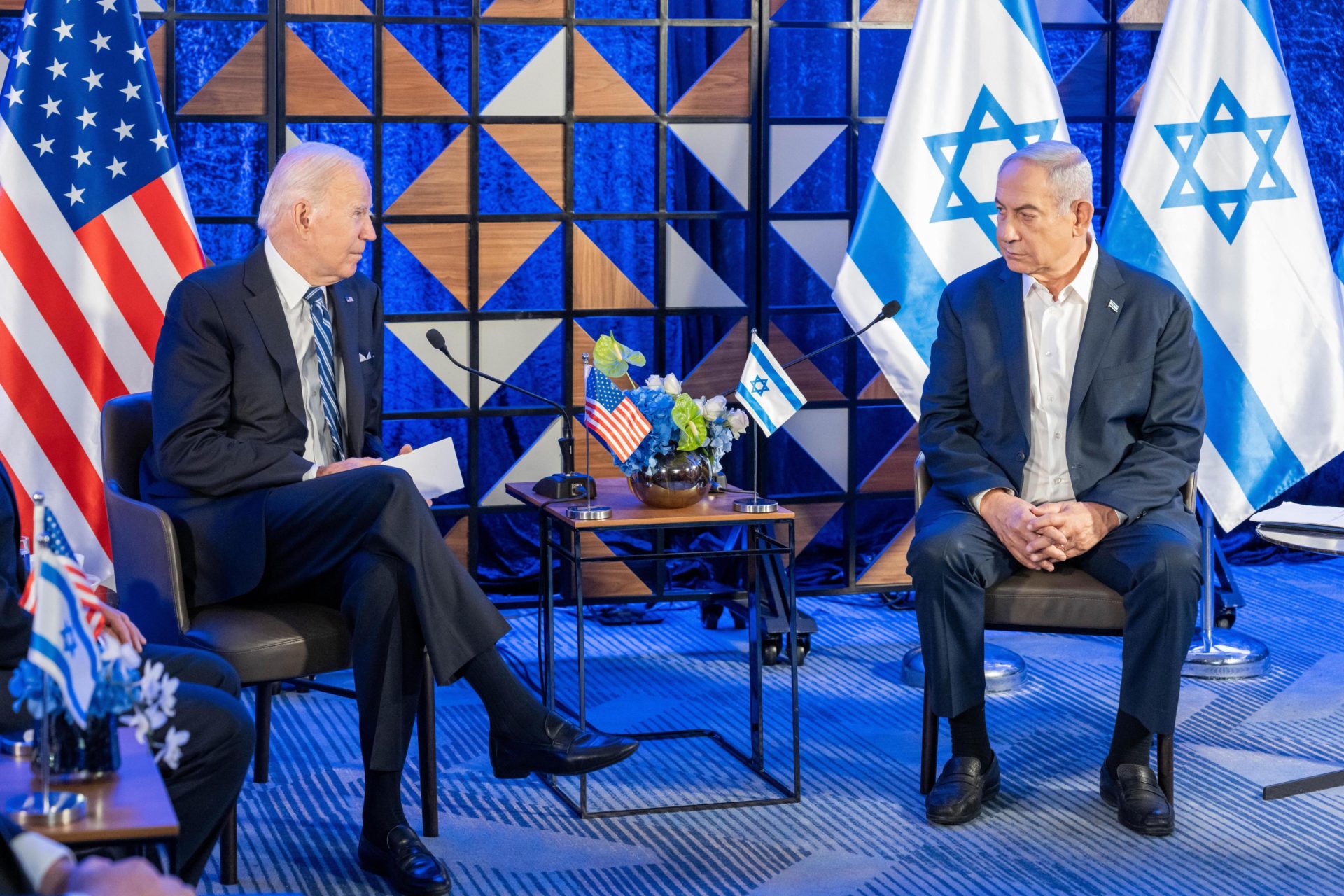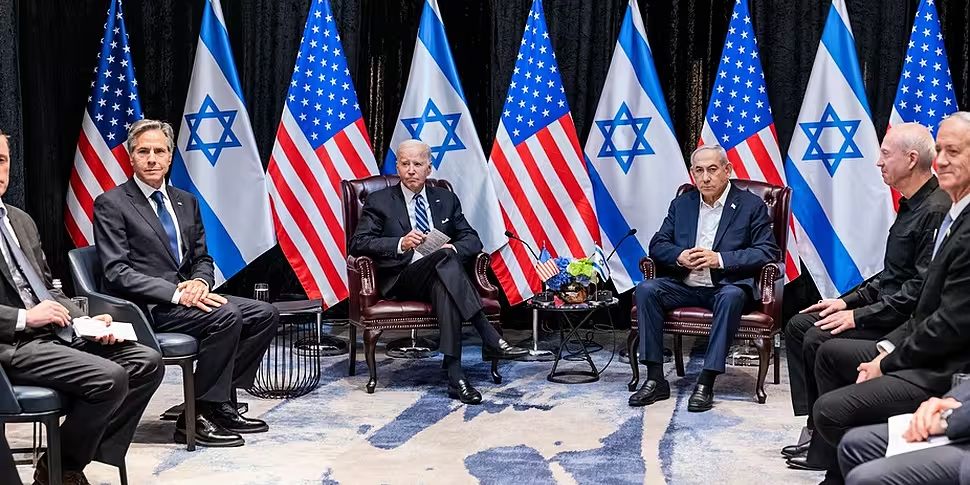Limited quantities of humanitarian aid are set to flow into Gaza from Egypt, but one expert has warned it is looking 'too little too late' diplomatically.
It follows a request by US President Joe Biden during his visit to Israel on Wednesday.
President Biden was also due to meet the leaders of Jordan, Egypt and Palestine in Amman, but this was called off at the last minute.
President Biden said Egypt's President Abdel Fattah al-Sisi had agreed to open the Rafah Crossing to allow 20 trucks of aid into Gaza.
Ireland has also announced €13 million in additional funding for humanitarian assistance to the Palestinian people.
The funding announced on Wednesday amounts to €10 million in additional core funding to the UN Relief and Works Agency (UNRWA), and an additional €3 million to the United Nations Office for Humanitarian Affairs' (UN OCHA) Occupied Palestinian Territories Humanitarian Fund.
This will bring Ireland's support to the people of Palestine in 2023 to €29 million.
It follows a huge blast which ripped through the al Ahli Hospital in Gaza City on Tuesday, where hundreds of Palestinians had taken refuge amid an Israeli siege of the Gaza Strip in the wake of Hamas's attack on October 7th.
Hamas officials claimed the hospital blast killed hundreds of people and was caused by an Israeli air strike - but the Israeli military blamed a misfiring rocket from the Palestinian Islamic Jihad group and released imagery and communications intercepts aimed at supporting their case.
 US President Joe Biden meets with Israel's Prime Minister Benjamin Netanyahu in Tel Aviv on October 29th 2023. Image: White House photo
US President Joe Biden meets with Israel's Prime Minister Benjamin Netanyahu in Tel Aviv on October 29th 2023. Image: White House photoHenderson Risk Group CEO and former UK diplomat Duncan Bullivant told Newstalk Breakfast he fears it may be too late to save face.
"Opening up the border between Egypt and Israel to allow limited humanitarian supplies at first is more of a test case to see if it works," he said.
"[It] is going to ease the situation on the ground, there's no doubt about it.
"In terms of easing the situation on the ground diplomatically, within the wider region, I'm not convinced if it isn't too little too late.
"I think the impact of the incident at the Baptist hospital in the last 72 hours; we're now in this - to coin a phrase - post-truth issue.
"The Arab world are not interested in whether or not this was a misfired rocket fired by Hamas or a sister group, or whether it was an Israeli explosive.
"The fact of the matter is, as far as they're concerned, Israel's to blame.
"Wider public opinion in the region, Arab public opinion, is inflamed towards the situation.
"I think that Biden's visit has probably been a bit of an anti-climax."
'Israel's government is not competent'
Mr Bullivant said President Biden has been silent on one issue.
"What is really needed at this stage of the game, and I think what a lot of people are looking for and have not seen, is Biden really demanding of the Israelis some form of heroic restraint in terms of the way in which they respond to Hamas," he said.
"The issue now is that this situation is so incendiary."
Mr Bullivant said Israel itself does not have a stable government.
"The other thing to bear in mind at this stage also is that the Israeli government are not a competent, normal government," he said.
"[Israeli PM] Netanyahu has presided over a cabinet of extreme right-wingers, there are all sorts of allegations of historic corruption within the cabinet.
"Netanyahu himself is not regarded by many as a natural democrat or a man who has ever really sought peace in the past.
"You've got a confused and peculiar political leadership sitting on top of a very, very potent military machine who are not in love with Netanyahu.
"The Israeli Defence Force do not like this man," he added.









